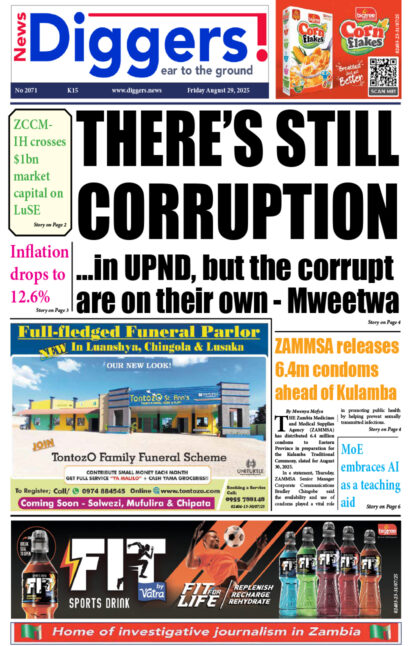Civil Society Organisations say Zambia would have not been seeking IMF support now if the country’s resources were properly managed in the past years.
In a statement issued by Center for Trade Policy and Development (CTPD) Acting executive director Isaac Mwaipopo on behalf of Action Aid, CUTS International, Water Aid, TIZ and ZCSD; the CSOs observed that Zambia borrowed with less caution and went on to spend beyond what it had as a country.
“The Civil Society Organisations note that there was internal mismanagement of resources which greatly contributed to the crisis the country is facing currently, we can pat ourselves on the back as a country for coming up with the recovery Programme but if we had managed things well, we would have avoided the predicament we find ourselves in today, We perhaps would not be needing IMF support. We need their support now because we borrowed with less caution and went on to spend beyond what we had as a country,” Mwaipopo stated.
“The development of the economic recovery plan is needed to direct the country back to favorable economic performance and boost stakeholder confidence. The Zambian government is considering whether or not to access a loan from the International Monetary Fund (IMF). Given many developing countries negative experiences with IMF aid, including Zambia’s own, many stakeholders are cautious about the prospect of accessing an IMF loan because austerity measures historically imposed by the IMF often hit the poorest hardest, for instance by putting up regressive consumption taxes. However, it must be understood that the economic cost of not seeking support from the IMF would be severe for Zambian households and the economy. more generally.”
And Mwaipopo stated that Governments’ decision to increase domestic resource mobilization through strengthening tax policy and administration, would in turn strengthen tax policy.
And the CSOs further called on Government to prioritize social protection, tax reforms, and adjustment of electricity tariffs as it goes to the USA to sign up to IMF programme.
“As the Zambian government goes to Washington DC to further engage with the IMF, Civil Society is calling on the Government to prioritize; social protection programmes, tax reforms, if Zambia is to sign up to an IMF Programme.”
“If the poorest are to be protected then social protection measures should be increased with programmes such as social cash transfers targeting a larger portion of the population living under absolute poverty (which currently accounts for about 57.7% of the rural population). Tax mobilization must be progressive with the more affluent paying their fair share. We note that the Zambia Revenue Authority plans to undertake reforms aimed at strengthening the institutions capacity to collect revenue among which includes the need to introduce the Electronic Fiscal Devices aimed at capturing value added tax at the point of sale, plans to bring on board local authorities to help in the collection of taxes, reviewing operations and presence of ZRA on all border posts, enforcement of withholding tax on rentals and conducting a forensic audit on mining firms,” stated Mwaipopo.
























